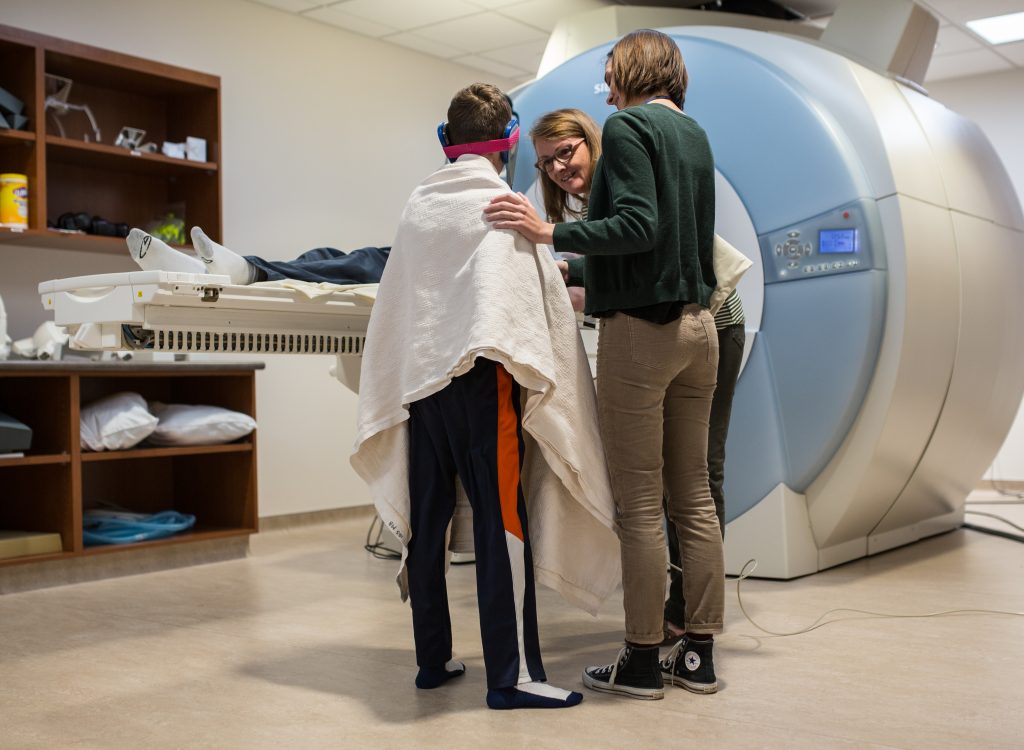
BYU teamed up with the University of Utah and found new insights into how children with autism tend to have more aggressive behavior than children who are not autistic.
BYU’s Autism Connect team recently discovered a connection between children born with shortened brain stems and aggressive behavior.
The team started three years ago in the David O. McKay School of Education; it includes researchers at BYU, as well as researchers from other college campuses.
BYU assistant psychology and special education professor Terisa Gabrielsen said the team’s goal is to make life better for families with autistic children.
“We are looking everywhere we can, even inside the brain,” Gabrielsen said. “Not all children with autism show aggressive behaviors, but for those who do, it is probably the most disruptive part of living with autism.”
Gabrielsen said she hopes this research will find ways to help families prevent the aggressive behavior before it happens.
The team observed two groups of children with autism for the project. One group showed aggressive behavior and the other did not. After analyzing the data, BYU psychology assistant professor Rebecca Lundwall said they were able to find a connection between the brain stem and the aggression of a child with autism.
This is the first time Lundwall’s research focused on the relationship between aggression and autism. She explained more research needs to be done.
“Any of the following would be helpful: repeating the study with more participants, seeing if the findings hold for girls with autism as well as for boys, and including a variety of measures of language and communication skill to see if children with low language ability are more likely to be aggressive,” Lundwall said.
Lundwall worked with 11 authors from BYU and professors from University of Utah to conduct this study.
Coauthor and clinical psychology Ph.D. student, Kevin Stephenson, said the study found children with autism had a smaller brain stem volume. These children with smaller brain stem volumes also showed more aggressive behavior.
“The brain stem is really involved in autonomic activities — breathing, heart rate, staying awake — so this is evidence that there’s something core and basic, this connection between aggression and autism,” Stephenson said.
Even though this is just one small piece of research, it gives these professors a better idea of why children with autism have this aggression.




